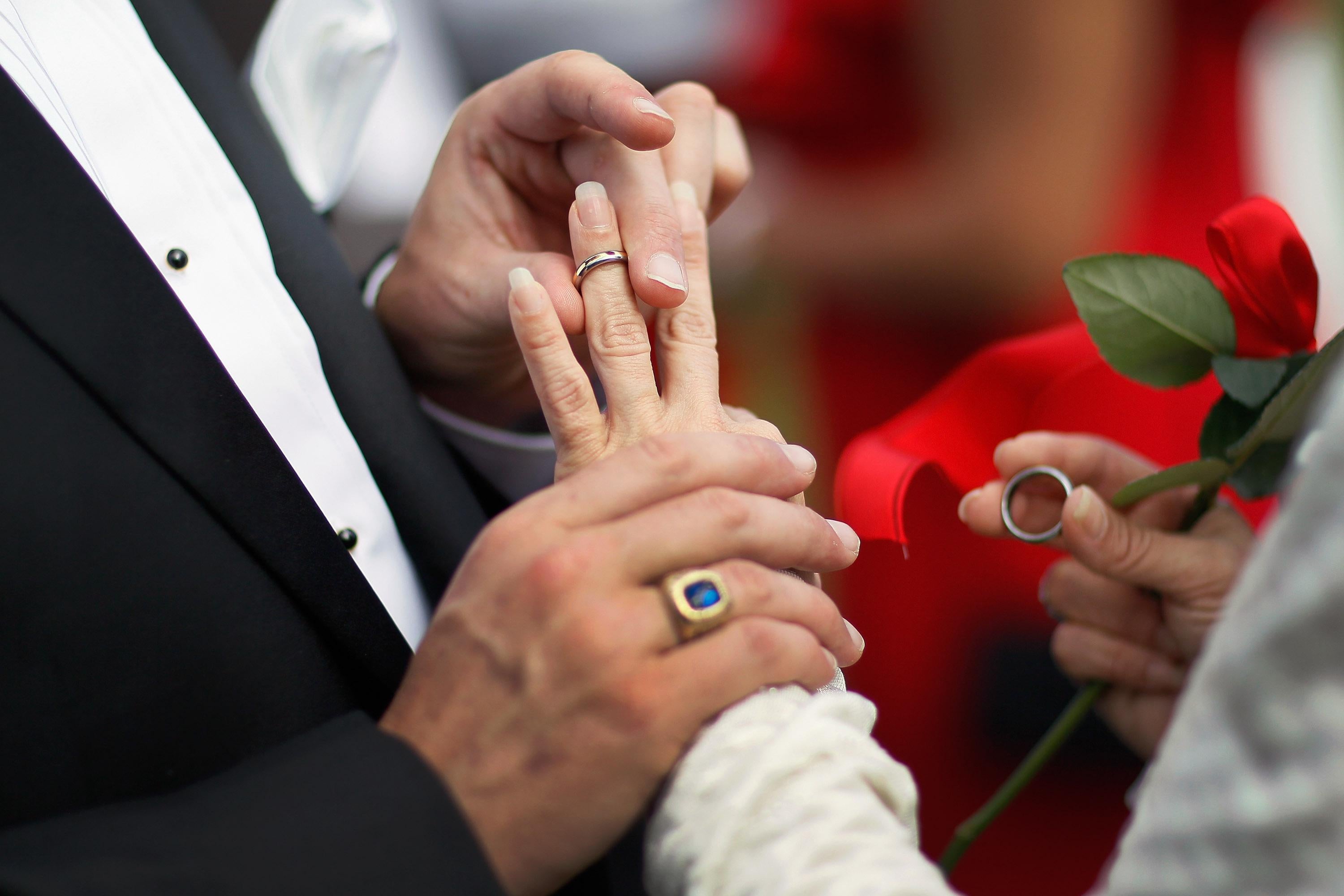The routine conservative exhortations to single women to hurry up and get married already became downright irresponsible on Tuesday with W. Bradford Wilcox and Robin Fretwell Wilson’s piece in the Washington Post titled “One way to end violence against women? Stop taking lovers and get married.” It’s not a well-argued essay (clearly) but kudos to Wilcox and Wilson for managing both to blame women for male violence and guilt-trip them for not marrying the first man they meet with a pulse. If only they had worked in a dig about cats.
The headline is not misleading: The piece actually argues that marriage is the best prevention against violence for women. “The bottom line is this: Married women are notably safer than their unmarried peers, and girls raised in a home with their married father are markedly less likely to be abused or assaulted than children living without their own father,” they write. Of course, while playing the game of manipulating statistics, they pointedly ignore the fact that domestic violence rates have been falling at the same time marriage rates are falling. I guess correlation only equals causation if it serves the right cause.
While Wilcox and Wilson tacitly admit that the correlation between marriage and lower rates of violence might be because “women in healthy, safe relationships are more likely to select into marriage,” most of the piece is an attempt to convince women that it’s the presence of a wedding ring itself that reduces violence more than the likelier story, which is that abusive relationships often fall apart before the marriage begins.
“But marriage also seems to cause men to behave better,” Wilcox and Wilson write. “That’s because men tend to settle down after they marry, to be more attentive to the expectations of friends and kin, to be more faithful, and to be more committed to their partners—factors that minimize the risk of violence.” To sweeten the deal, they also promise that by squeezing that wedding ring onto his finger, you get to live in a better neighborhood and lower your chances of getting robbed. Taken as a whole, in fact, the piece reads like a threat: Get married or you face the violent consequences, ladies.
Look, there is no doubt that there’s a correlation between being married and lower rates of violence, but it’s not likely because marriage itself provides protection. It’s because the same privileges that lead to higher rates of marriage—higher incomes, more education, older age—also lead to living in safer neighborhoods and having lower rates of interpersonal violence. Hijacking women’s experiences of violence in order to bully them about being single isn’t just tacky, but dishonest.
It’s hard to overstate the gross negligence of this piece (which, by the way, is pegged to Father’s Day). One of the most confounding issues when it comes to domestic violence is that many victims believe that if they just love a little harder and put a little more work into the relationship, they can turn an abusive partner into a loving one. Even though Wilcox and Wilson admit “married men can and do abuse or assault their wives,” they immediately return to arguing that “married fathers are much less likely to resort to violence,” as if the marriage itself was the reason. The last thing that women in abusive relationships need is to be told that they can turn a bad man good by marrying him. Women in abusive relationships need help getting out, not a prod to stay in.
